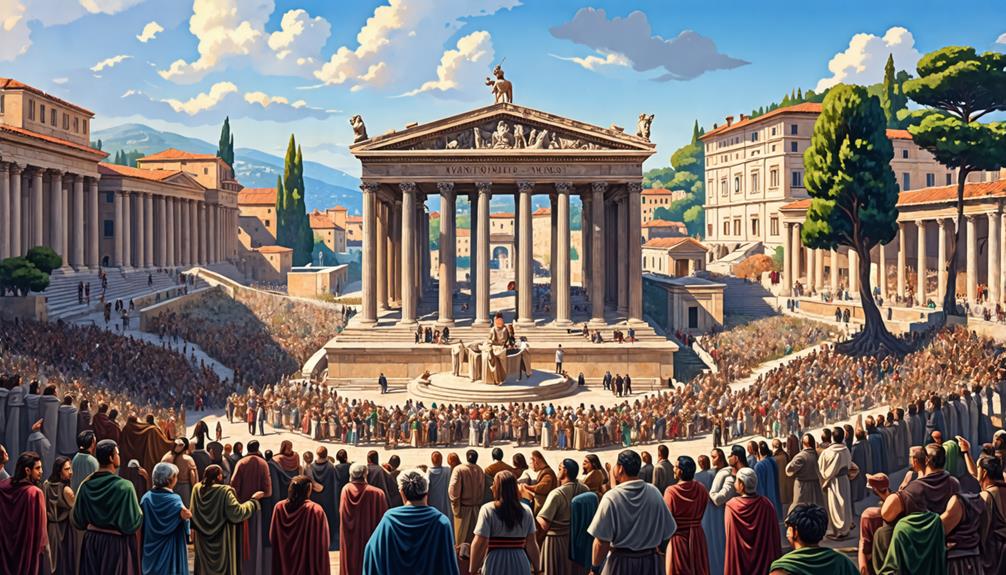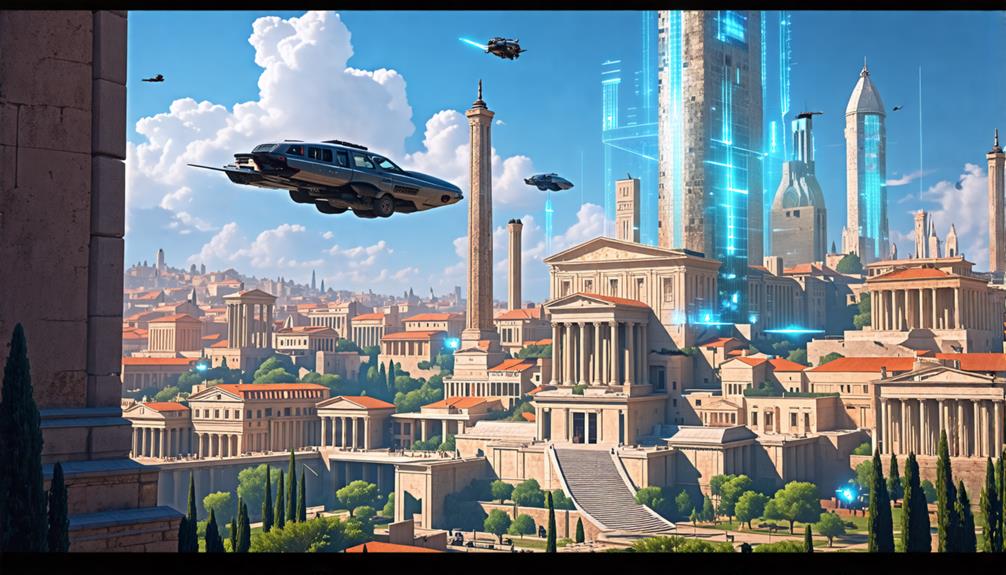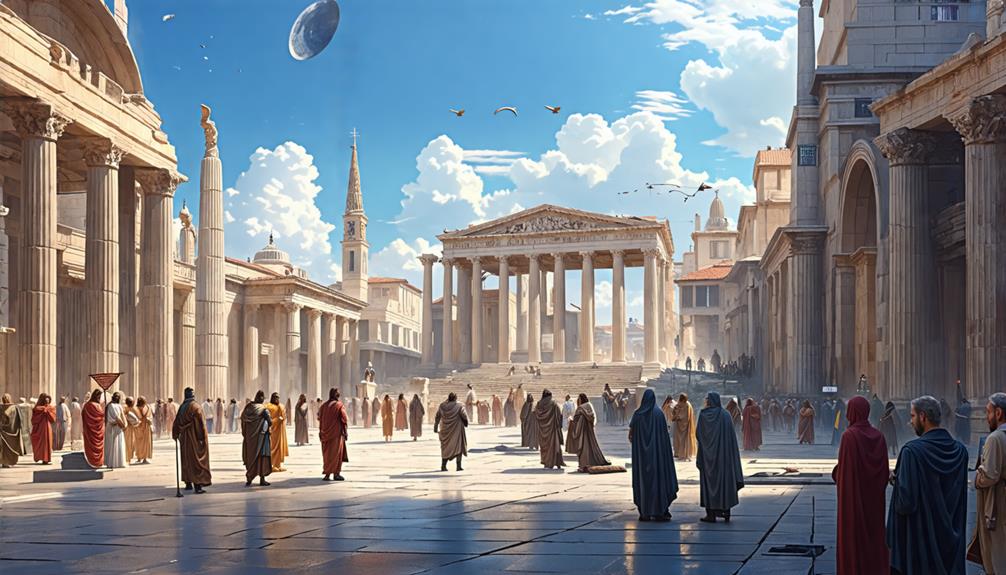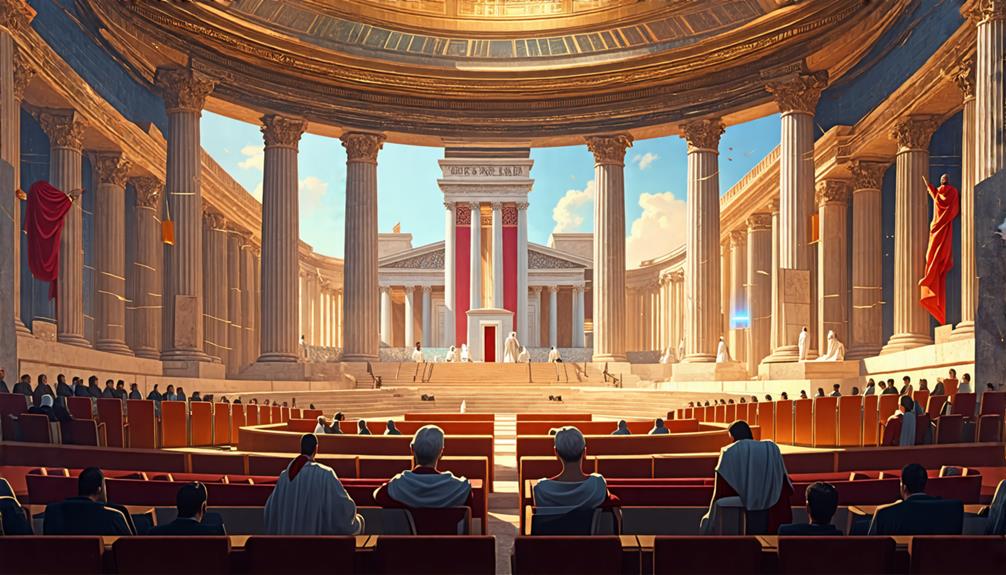In an alternate timeline, the Roman Republic endures and evolves into a democratic system. This scenario would dramatically alter the course of history.
Imagine the implications of a stable, prosperous Roman Republic that never fell. How would this shape the development of Western civilization?
Consider the potential for advancements in governance, culture, and technology. The continued existence of a democratic Rome might lead to a more unified Europe, influencing the spread of ideas and innovations.
Additionally, the preservation of Roman law and political structures could result in a different trajectory for modern democracies.
What would our world look like today? The answer lies in the interplay of these historical developments and their long-lasting effects on global politics, society, and cultures.
Political Stability

In an alternate timeline, the Roman Republic could have transitioned into a democratic system, potentially leading to lasting political stability. One theory is that this would have created a government more responsive to its people, with a system of checks and balances to prevent concentration of power.
It's possible that such a development could have meant significant changes to the course of Western civilization. However, some scholars argue that the Roman Republic's complex social hierarchy and entrenched traditions would have made such a transition difficult.
Interestingly, certain elements of this scenario did emerge centuries later during the Age of Enlightenment, which saw the rise of democratic ideals and republican governments in parts of Europe and America.
Economic Prosperity
In an alternate timeline where ancient Rome maintained a stable democratic system, some historians theorize that it could have led to increased economic prosperity. The government's responsiveness to citizens' needs might've encouraged trade, innovation, and investment, potentially leading to a thriving middle class.
Artisans and merchants may have benefited from increased demand for their goods and services. Additionally, infrastructure projects like roads and aqueducts could have further facilitated economic growth and development, although the extent of this impact is debated among scholars.
It's worth noting that similar democratic systems were later attempted by other civilizations, such as the Icelandic Commonwealth in the Middle Ages and the United States in the late 18th century, with varying degrees of success in terms of economic prosperity.
Technological Advancements

Some historians theorize that an enduring Roman Republic could have jumpstarted technological progress. If Roman innovators, spurred by economic incentives and government support, had invented key technologies like the printing press or steam engine centuries ahead of schedule, it might've radically reshaped the ancient world.
While this scenario didn't play out in Rome, one could draw parallels to the rapid advances that occurred centuries later during the Renaissance and Industrial Revolution in Europe. Democratic institutions and market forces during those eras did help drive immense technological and social change, so it's plausible that similar conditions in ancient Rome may have had comparable effects.
Philosophical Enlightenment
While a democratic Roman Republic could have potentially spurred philosophical enlightenment, it's uncertain how this would have unfolded.
One theory is that great thinkers would have built upon Greek and Roman ideas, possibly leading to an earlier Age of Enlightenment. It's conceivable that intellectual debates and the exchange of ideas between various schools of thought, such as Stoicism, Skepticism, Virtue Ethics, and Hedonism, could have flourished.
The impact on political philosophy is another area of speculation, with concepts like Natural Law, Social Contract Theory, Cosmopolitanism, and Individualism potentially emerging earlier.
The emphasis on reason and empiricism might've also been accelerated. It's worth noting that similar philosophical movements did occur centuries later during the actual Age of Enlightenment in Europe, albeit under different circumstances.
Expanded Citizenship

In an alternative history scenario where the Roman Republic became more democratic, one theory is that citizenship rights would have expanded to include people across the Italian peninsula and beyond. This could have led to a more inclusive society with increased political participation from a broader range of individuals.
However, it's possible that traditionalists would have resisted such changes, viewing them as a threat to the established order.
Interestingly, some aspects of this scenario did occur later in history during the French Revolution, where citizenship was granted more widely, though in a very different context than ancient Rome.
Lasting Legacy
Some historians theorize that if democracy had taken root in ancient Rome, it could have influenced language, law, architecture, and governance around the world.
One possibility is that centuries of monarchy and authoritarianism might've been avoided, potentially accelerating the arrival of the Enlightenment and democratic revolutions.
It's worth noting that similar ideas emerged much later during the Age of Enlightenment in the 17th and 18th centuries, with thinkers like John Locke and Montesquieu advocating for democracy and separation of powers.
Whether an earlier adoption of democratic ideals would have significantly altered the course of human progress is a topic of ongoing debate among scholars.
Conclusion
If you lived in this alternate reality, you'd see a world shaped by Roman ideals.
Imagine – 90% of European languages might've Latin roots!
The Senate, not emperors, would steer the course of history.
Steam power could've emerged centuries earlier, launching an industrial revolution in the 1200s.
Enlightenment ideals of liberty and equality would be woven into society's fabric.
The Roman Republic's enduring legacy would touch every corner of your life.

Leave a Reply